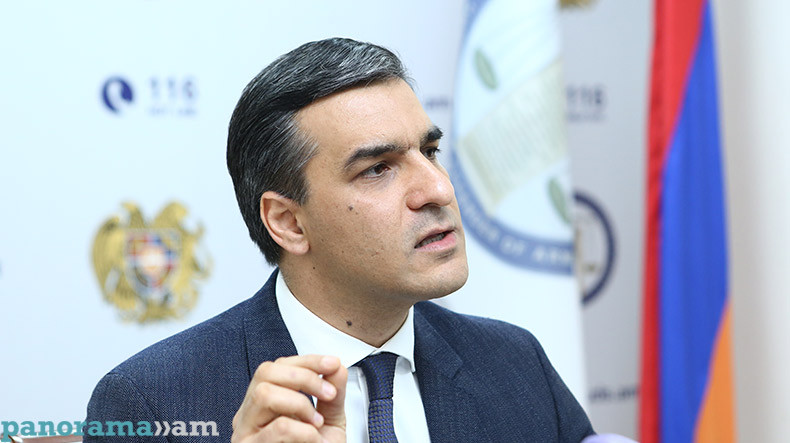
Ombudsman: Several rights to life and mental integrity of Armenia’s border residents under ‘serious threat’
Armenia’s Human Rights Defender (Ombudsman) Arman Tatoyan on Monday stated that the creation of an atmosphere of solidarity and tolerance in the country is a key priority now.
“The level of intolerance is very alarming, it has reached a dangerous level, there is no [public] trust in polyclinics, there are numerous problems in penitentiary institutions,” he told reporters, adding that the ombudsman's annual report addressing these issues has already been completed.
Referring to the border-related issues, the ombudsman noted that there are problems concerning the rights of residents of border communities, calling attention to gross violations of their rights.
“The appearance of the Azerbaijani armed forces in Syunik Province after the war totally contradicts the principles of international law and human rights and is illegitimate.
“As a result, the rights of border residents of the Republic of Armenia are seriously violated, including the rights to property, entrepreneurial activity, etc. A number of rights to life, health, physical and mental integrity and free movement are under serious threat,” he stressed.
Arman Tatoyan reiterated the need for the creation of a security zone, adding the Azerbaijani armed forces and border troops with their signs and flags must be removed from the area.
“No processes related to the border should disrupt the normal life of people,” the ombudsman said.
Tatoyan noted that Azerbaijan also seeks to keep tensions high in Armenia making use of the issue of Armenian prisoners of war (POWs) being held in the country.
“The media reported that they want to discuss the issue of return [of the POWs] in exchange for territorial issues and such moves amount to war crimes. Our compatriots were to be returned immediately after the cessation of hostilities and without any preconditions. The Azerbaijani authorities violate international principles of human rights protection. And if international structures fail to react to these violations, it means that they encourage them, setting a dangerous precedent,” the ombudsman said.
Newsfeed
Videos






























